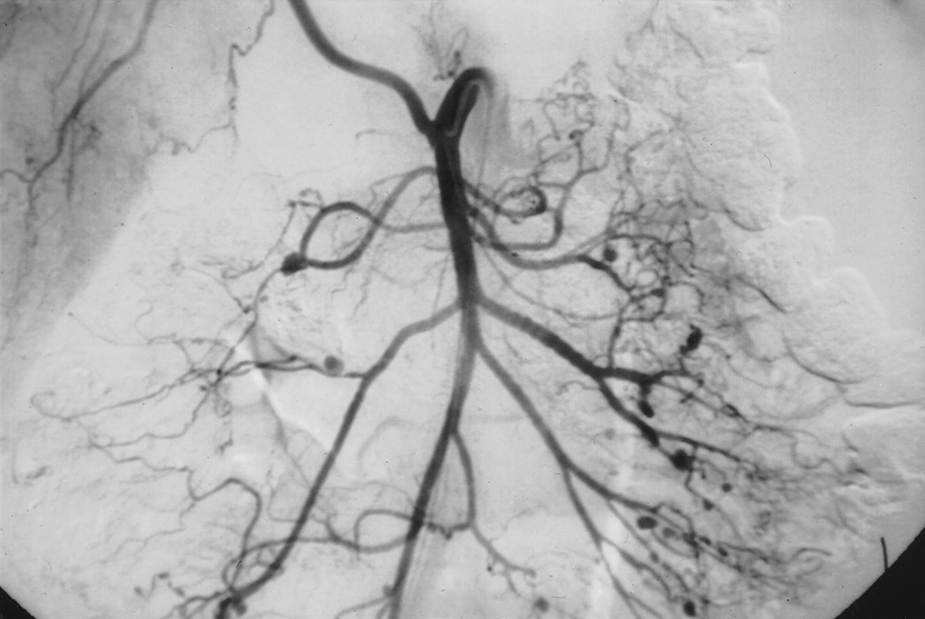polyarteritis nodosa, a severe and poorly understood collagen vascular disease characterized by widespread inflammation and necrosis of small and medium-sized arteries and ischemia of the tissues they serve. Any organ or organ system may be affected. The disease attacks men and women between 20 and 50 years of age. Its cause is unknown, although immunological factors are suspected. Polyarteritis nodosa may be acute and rapidly fatal or chronic and wasting. It is characterized by fever, abdominal pain, weight loss, neuropathy, and, if the kidneys are affected, hypertension, edema, and uremia. Some symptoms may mimic those of GI or cardiac disorders. Diagnosis is based on the clinical signs, results of laboratory tests, and findings of biopsy of sites affected by the disease. Aggressive treatment includes massive doses of corticosteroids and immunosuppressive drugs. Physical therapy helps the patient to maintain muscle tone and prevents or slows the development of disability.

